5 tips on how to talk your way into a promotion at work

Do you feel like you are stuck in a rut in your current position? Is the thrill of having a challenge long gone ? Are you having a hard time connecting the dots between how your current position will lead you to the position you aspire to be in some day? If you’re feeling any of the above, the obvious choice might be to move on from your current job, to “greener pastures”. However, there is another alternative. Maybe all you need is a “current job makeover”. I applied the 5 tips below when I found myself in a similar situation and the result was that I got a promotion, a significant salary increase and renewed passion and excitement for my job. [bctt tweet=”In the end, facts win over feelings when it comes to your professional life” username=”SheLeadsAfrica”] Make yourself indispensable From day 1 when I started my current job, I was eager to prove that I could do the job better than anyone else who had come before me. I came in early and left late. I often took work home in the evenings and on weekends (I had just moved to a new city in a new country so, in a way, work was also my solitude). I asked lots of questions. Read as much as I could to help me understand the new industry I was working in. When the opportunity to do tasks outside of my job description came up, I jumped at them immediately. Soon I started to see that my boss was getting more comfortable letting me do things that were technically above my pay grade. Work hard to make yourself indispensable. Figure out what you still have left to learn In the early days, I would sit in meetings with my boss and the higher ups, and realized that half of what they were saying was Greek to me. Granted, I was doing a kick ass job in my little corner, but there was so much about the work that I had no clue about. I made it my personal mission to learn from every member of the team, by offering to help them out with various assignments. The more I learned, the more I realized that the higher ups in my team started to pull me into the inner circle. Eventually, they even started asking for my opinion about things. Pitch a new position which reflects where you are trying to go Realizing that I could do so much more in this field was probably what brought on the itch to leave in the first place. Suddenly my role became too small and too confining. On one hand, I wanted to grow and take on even more responsibility. Bur on the other hand I knew that I did not have the over 10 years experience the colleague next in line had. What to do? I drew up a list of the things in my current job description that I wanted to keep doing; the things outside of my job description that I wanted to do more of; and the things that I wanted to learn to do. In doing this exercise I came up with a whole new job description. I pitched this idea to my boss. She took my proposition seriously and brought this to the attention of the higher ups. After some deliberation and modification; they agreed to create this new position for me. Back up your request with facts I didn’t just rock up into this meeting and demand to have them switch things up for me for no good reason. I took the time to document every single thing that I had done on the job, including the things that were outside my role. From the big things where I’d helped out with projects in other countries, to the little things like the new initiatives I’d spearheaded within our country team. For every new task and responsibility, I included in my new job description, I backed it up with examples that showed that I was up to the task. In the end, facts win over feelings when it comes to your professional life. No one is going to hand you something just because you ask for it. People are never going to pay you what you think you’re worth. You’re going to have to get in there and show yourself as worthy and then claim what is yours. Keep your cool and be prepared to walk I remember walking out of the meeting thinking “What if my boss takes this to the higher ups and they say no? Then what?” I knew that if it came to that then I would have to make a decision to leave. If you realize that you are in an environment that is not invested in your growth and is not helping you actualize your full potential, then I think that is always the best time to walk away. Luckily for me, I didn’t have to. A week later, they came back with an offer that was even better than I could have imagined. So I stayed, and I’m committed to growing but also contributing to the growth of my team; and doing my part to help them achieve their objectives. Have you been in a similar situation at work? Let us know your story here.
Nneka Obianuju Onubogu: I have never felt inferior because of my gender
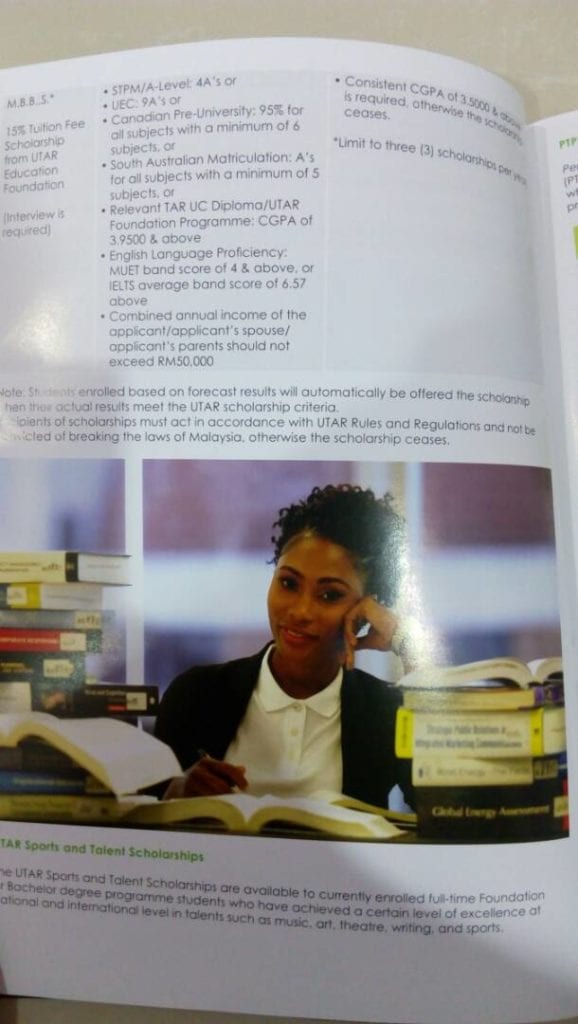
Read how Nneka Obianuju Onubogu a Mechanical Engineer; and currently a research assistant at Universiti Tunku Abdul Rahman Malaysia, is unperturbed by gender stereotypes in the industry. A Harvard Business Review article of 2016, was an answer to an inquiry of ” why do so many women who study engineering leave the field?” And one of the reasons given was “gender stereotypes”. So, if you are contemplating abandoning your career in one of the STEM fields due to gender stereotypes or any other reason, before you throw in the towel, wait! [bctt tweet=”I have a passion for fixing things” username=”SheLeadsAfrica”] Having a role model and following your passion makes it easy Nneka’s motivation for pursuing a career in mechanical engineering were influenced by two things: “First is my dad, who is a practicing Mechanical Engineer. I admired and still admire him so much that I wanted to be just like him. Secondly, I have a passion for fixing things. I am very inquisitive on the mechanics behind any machines’ motion. Right from childhood, I had a habit of unscrewing all my toys and fixing them back over and over again.” When you are passionate about anything, it will be very hard for you to throw in the towel, especially when the going gets though. [bctt tweet=”being different means making a difference anywhere you go and anywhere you find yourself” username=”SheLeadsAfrica”] Remember that you are a woman with talents and abilities Being a ‘woman’ should not make you feel less than a human being when assigned to male dominated teams, you are as capable as your male colleagues! Nneka says “Our research team actually consists of all men (Professors, Doctors and lecturers) and one lady (myself). We treat each other equally and there has never been a period when I felt inferior because of my gender”. When you still feel overwhelmed,borrow a page from Nneka’s book,”sometimes I feel like ‘a woman in a man’s world’ hence, I give my best contribution to my team”. Nneka is currently working on a project tagged ‘Wide acceptance angle optical fiber-based day- lighting system using two-stage non-imaging solar concentrator’. “This is a project sponsored by the Ministry of Energy, Malaysia”. The papers can be found in the links below: http://www.sciencedirect.com/science/article/pii/S187661021 http://www.sciencedirect.com/science/article/pii/S030626191730750X [bctt tweet=”I have met many ladies like me who are in male dominated career paths and they also strive hard to be the best and make a difference” username=”SheLeadsAfrica”]Blend in Whether you are in a local or global community, do not isolate yourself. Nneka, although from Africa, found herself working and studying in Asia. She quickly learned the language and befriended some locals. “Even though my University is generally Chinese dominated, everyone speaks English and every lecture and research is conducted in English. Irrespective of that, students and my research team members still switch to Chinese language when they discuss within themselves. This is not a problem for me as I have learned the Chinese language (conversational) and I can understand what they say. Right now, I am a professional at eating local foods with ease. I am also the only foreigner (African) in my office, but I still participate in every event weather Chinese, Malay or Indian”. Conquer any inferiority complex by actively making a difference Nneka’s slogan is ” Being different means making a difference anywhere you go and anywhere you find yourself”. She adds that “the fact that you are in a career path where you are the only lady in a team of men is the key reason for you to stand out”. Some African people say, ‘Mechanical Engineering is not for ladies; a lady should be a teacher, a lawyer or even a house wife’. I can boldly say from experience that it is a blatant lie! “I have met many African ladies like me who are in male dominated career paths, who also strive be the best and make a difference. This should inspire other women who have dropped out to get back on their feet and even do better” she says. [bctt tweet=”… I show them that Africans are not racist by braiding the hair of the kids for free.” username=”SheLeadsAfrica”] Making a difference includes contributing to the community you find yourself. Nneka does this by using one of her skills to make children smile. “I have made an impact in the lives of the locals here, especially via my hair braiding skills. I was so surprised when I made it to the Chinese newspapers for just that little kind gesture “. In addition, Nneka has many solar technology ideas that she intends to implement when she arrives in Nigeria. You see why she just can’t turn her back? When you are full of dreams and know that the world is waiting to feel your impact, you wont turn back! Networking is one the keys to staying motivated Networking is today’s currency to getting up the success ladder and staying motivated. Nneka advises those in a global career and STEM fields to “try creating a network with people who are pioneers in that career path. In that way, they stay motivated and become significantly better”. Are you in male dominated field/ industry? Let us know more about you and your story here
Flo Awolaja: Don’t take your talent for granted
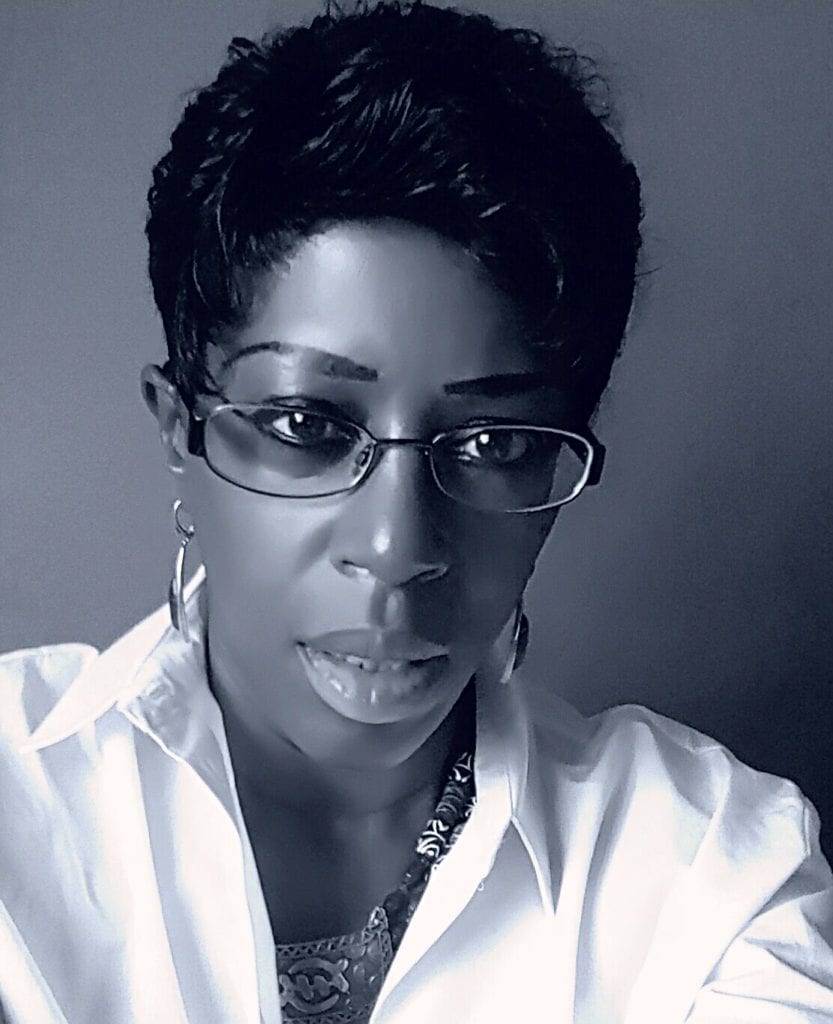
[bctt tweet=”Flo Awolaja represents a lot of things in one, as a writer, poet, and photographer” username=”SheLeadsAfrica”] Growing up in a household rich in colour, born to parents of Nigerian heritage and a culture that inspired her artistic talents, it’s no surprise that Flo Awolaja grew to become an incredible burst of creativity. Flo is a fun loving and exuberant personality that exudes a quiet confidence and steely determination to succeed in all things. She has been influenced by many of her mother’s collection of African fabrics, various painters, designers, textile artists, photographers and inspired by a plethora of contemporary Nigerian and African American artists in the likes of Chief Nike Davies-Okundaye, Abdoulaye Konaté, Peju Alatise, Victoria Udonian, Hayden Palmer, William H Johnson, Elizabeth Catlett, Romare Bearden et al. Flo Awolaja represents a lot of things in one, as a writer, poet, and photographer, she continues to take delight in all visual pleasures which stimulate the senses. She also has a successful career as a graphic designer and lecturer and has combined her passion for art, design, and photography with teaching, working to raise achievement in her learners by encouraging them, raising their self-esteem, and aspiring confidence in them. [bctt tweet=”The things that are random are not your calling, they are your passion” username=”SheLeadsAfrica”] Tell us about your work on African Arts. There is an expression that I have been carrying around with me for the best part of a year now. When I stumbled upon it, whilst surfing through social media, it was so profound that I have it permanently on my screen saver on the laptop to remind me to keep striving and designing, and how fortunate I am to be doing the things I like. The quote is, “The things that are random, are not your calling, they are your passion”. This is what essentially guides me, and I really do try not to take my talent for granted. Like most things, the body of work that I am now exploring happened by accident, (the best things usually do) it occurred whilst I was at home looking after my son, who had been in the hospital and was now convalescing at home. I had travelled to Ghana in 2013 and brought back a lot of batik fabrics. Not knowing what I wanted to do with them, they lay dormant, until 2015. Whilst looking after my son, I remembered that I had them, and had added to the collection by purchasing metre samples in all colours from friends who would travel to Nigeria and Ghana, gently asking them to bring me back whatever they could. In those moments as a designer, the light bulb goes on and you find yourself creating pieces, which is how the first few ideas transpired. Gradually one became two, and the pieces began to materialise, to the extent that I had about 20 small pieces which I had framed. Enter my son, who saw me spread them out on the floor and was marvelled at how I had managed to hide them around the house, out of the eyes of my mother. Quick as a flash he had photographed them and posted them onto his Instagram account, I still do not have one! From that moment the genie had been released and it was not going to go back into the bottle. It became a question of how to showcase the designs to a wider audience. Each opportunity has acted like a stepping stone, I have been most fortunate in the breaks that have come my way I tend to look at my work much in the way a painter starts with a blank canvas. No two pieces that I create will ever be the same. Whilst I am creating these textile paintings, I am only aware of the colours that I will use, but not the journey of the piece, each one has its own rhythm and story, that for me is what makes each one off piece unique. [bctt tweet=”The universe has a lovely way of conspiring to tell you something different – @Maverikartz” username=”SheLeadsAfrica”] What inspires your art works and exhibitions? Wow, that is a difficult question, but I can honestly say that I am inspired by many things, from listening to music, conversation, hearing and reading a line of poetry, along with photographs that just capture my imagination. I also think that being raised in a culture steeped in Yoruba tradition, has been instrumental in my journey as a designer. My mother was a printer and my father was a draughtsman, so design and the love of design have been instilled in me from an early age. I am inspired by anything that delights and tickles my visual senses. How would you compare the Western and African market in terms of values for art works? Like most things we have been constantly conditioned through no fault of our own to have the idea that African works of art are somewhat in inferior; that is certainly not my view, and anyone who knows me will tell you I am the most ardent and fervent champion of our African Ancestry and Heritage. The African market is far more exciting. The current resurgence and proliferation of African art is taking the art world by storm. Our trajectory of art has always been rising, however presently its stock has never been higher, why is this? Artists from Picasso to Hirst have made more than a passing reference to the art of Africa, even to the point of appropriating whole elements in the quest to claim works as their own. So why the sudden interest? What many curators were happy to call ‘tribal’, that somehow adding the word ‘tribal’ made it somewhat less authentic and therefore was not really valued. Fast forward, the last few years have seen a sudden surge of interest as new kids on the block enter. From photographers and sculptors to painters and textile designers, old and new now
Tope Hassan: Our team functions entirely on social media

[bctt tweet=”We successfully created a diverse and a multi-networking hub for Africans to know about each other” via=”no”] Tope Hassan, the “Disruptive Diasporan”, is the founder of ISOKO Africa. She is a multi-lingual young African entrepreneur specializing in marketing, compliance, and media to create multi-dimensional business systems where start-ups and multi-national companies can operate fairly in a corrupt free environment and standardized economy. Tope is popularly known as an African Tourist, backpacking through African nations to discover African brands and entrepreneurs; a yoga teacher dedicated to health and well-being lifestyles of professionals and entrepreneurs; as an advocate for African brands helping them reach a wider market than their local communities; and a Media and Public Speaker sharing experiences of Africa, its brands, commerce and industry, healthy lifestyles, life lessons and inspiration. She also blogs at TopeHassan.com What inspired your decision to start ISOKO Africa? I am popularly known for my passion for Africa, which is not limited to Black girl magic, Ankara print, melanin skin and all the paraphernalia that comes with it. The commercial and inter-relations sectors of Africa pumps my passion from my lifestyle to my dreams so much that African brands in all sectors are my first option before seeking foreign brands. People get shocked when I show them products/services/apps/companies that beat global standards and wonder why they never knew about it. This made me the go-to person to recommend best options for African brands. So I decided that instead of responding to tons of calls and emails per day, how about if I created a platform for African brands to reach a global target market beyond their local communities? This platform would also to help them sell their brands globally thereby gaining the recognition and market they rightly deserve. ISOKO Africa is born out of the urgent need to eradicate the popular misconceptions and stereotypes around African brands and exposing them globally. It is geared towards repositioning minds of African entrepreneurs to build their companies as brands and not just a shop/business. ISOKO Africa, a media, and marketing organization is simply “African market” in the Swahili Language. How has social media been able to help increase your productivity? When I started out last year, my focus was to inform the world that Africa has a lot to offer commercially. It’s disturbing how Africa is patronized simply for two things: its human resource and raw materials. The social media publicizes Africa as either Black girl magic and talent or famine and war zone. Our commercial brands hardly make headlines. I started podcasting through iTunes, Soundcloud, Midas Radio and other media platforms and backpacked through African nations to discover and interview remarkable entrepreneurs and thought leaders. These podcasts were publicized through social media, reaching to a diverse audience beyond Africa. Not only that, it also encouraged more Africans to use and listen to podcasts. We successfully created a diverse and a multi-networking hub for Africans to know about each other which led to trans-national sales for entrepreneurs. This ecosystem further fostered partnerships between entrepreneurs, service providers, and customers. Gradually, ISOKO Africa developed communities in several countries where we formed teams that have become voices of Africa quietly on the search for African Brands. Our team functions entirely on social media through messaging and meeting apps that have helped us to build the vision together achieving pellets of the milestone at a time. [bctt tweet=”The best way for us to build an influential online presence is to foster communities-Tope Hassan” username=”SheLeadsAfrica”] What major social media campaign helped to increase your online presence? Kindly give details of the plan and how it worked. The campaigns that focused on community inclusion buffered our online presence. We advertised our tour of West African nations and this attracted a diverse audience and lots of entries. We asked our followers to recommend brands within their area for us to interview and received an overwhelming response. The messages recommended amazing brands interested in joining the experience of new Africa by either documenting, making videos, inviting us for a talk or simply to enjoy the trip and meeting entrepreneurs. It’s amazing to discover that Africans desire their friends and nations to be represented globally. This lead to our conclusion that the best way for us to build an influential online presence, is to foster communities. To achieve this, we Invested in awesome and relatable HD graphics and images: One of the greatest assets on our team is the graphic design and photography fellow. People are intrigued by appealing and great images. It’s easy to attract attention when they can relate to what you say. Defined our audience: Before publishing our posts, we ensure it would be appealing to our target audience. We also ensured to update our followers about each decision every step of the way. Fostered partner communities: We connected our vision online by engaging with our audience offline to build communities around our goal. We did this by partnering with similar event campaigns, communities, and movements. This helped to build trust, inclusion, and network and convert talk into action. It also got us a lot of feedback. [bctt tweet=”I use social media to showcase a positive side of Africa.- Tope Hassan” username=”SheLeadsAfrica”] Have you ever had any downside on social media? I have had to learn how to build everything we used on our platform from the website to recording and uploading podcasts. Our platform started its content through podcasting which is relatively an untapped market in Africa. Unfortunately, social media platforms do not have the capacity to run podcasts and our listenership on the website was very poor. We ran surveys to find out how best to reach our audience and discovered that majority of African youths prefer to listen or read media on their mobile phones. This meant hosting podcasts on the website would be less effective. We changed our methods and I quickly had to learn the tricks of uploading our podcasts on iTunes, podcasts for Android, Soundcloud, Stitcher and
Anisa Mpungwe: Now clothing brands are offering a lifestyle
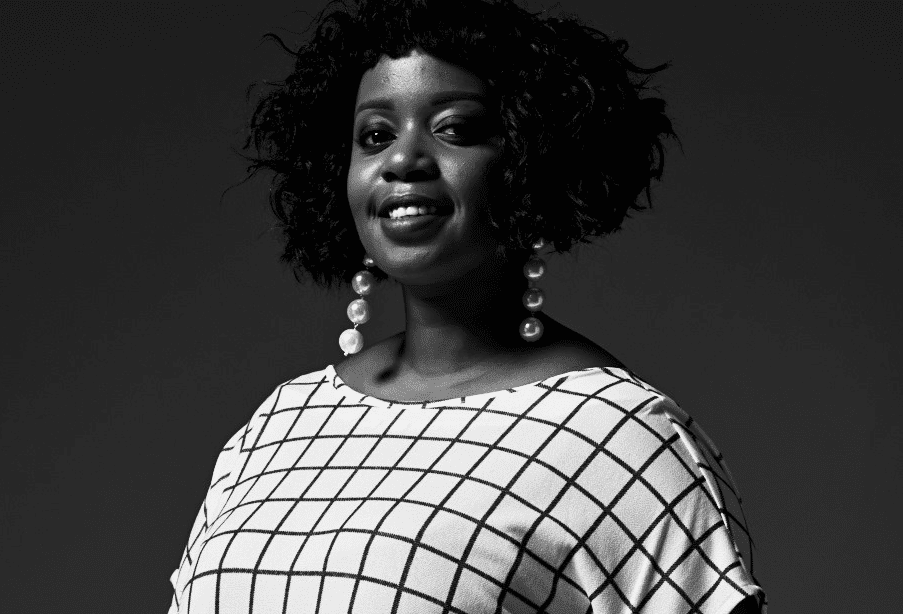
[bctt tweet=”I am African so that aesthetic cannot disappear, it will always be there – Anisa Mpungwe” username=”SheLeadsAfrica”] Anisa Mpungwe is a Tanzanian born, South African raised fashion marvel. She started her career at age 19 working for various fashion houses, magazines, and apparel factories within Africa, America, and the UK. Not a stranger on international runways, Anisa has showcased her work in fashion weeks in South Africa, Mozambique, Angola, Italy, Sweden and New York. You might have spotted this Motherland Mogul’s garments on stars like Solange Knowles, Anele Mdoda, Lira, Simphiwe Dana, Amel Larrieux, Sharon Smith, and Yukimi Nagano from Little Dragon. The former US first lady Michelle Obama donned Anisa’s clothing on her first visit to Johannesburg. Anisa has won the African Fashion International Emerging Designer Award 2013 and was the MTV Transform Today Award nominee. She has collaborated with brands such as LG, SPREE, Samsung, Maserati, Converse, Nestle, BET and Bobbi Brown. You can find Anisa between Johannesburg, Pretoria and Dar es Salaam studios. SLA contributor, Kutlwano Mokgojwa, checks in with the humble and spirited Motherland Mogul to get the lowdown on celebrating 5 years in business, creating a lifestyle brand and shipping worldwide. It has been 5 years since you opened the door to your flagship store, what would you say you owe to still being in business today? I think consistency is important in any business and across everything that you do. There are certain things that you must always do and always take care of. Another important thing is having a good team. There are days when you will not feel so great and you do not want to deal with customers, you can always pass the responsibility along when you have a good team and in my experience, getting a good team together takes a while. Your brand is described as having a strong African influence, prints and modern tribal. Do you think this description limits the brand or does it open the right doors? I think it is all of the above. People always need to relate your brand to something, whether it is an experience in their lives or something they have seen. I am African so that aesthetic cannot disappear, it will always be there. Our aesthetic will always be around the African heritage but I am also really interested in sportswear for example. I have travelled and moved around a lot and because of that, I am able to come back and tell a story through the garments. The change in the design is not that I am trying to target a specific person but it is just where the LoinCloth and Ashes (LCA) story is. You have paired up with vibrant talk show host and radio personality Anele Mdoda as your brand ambassador, how does she embody the LCA brand? Anele is quite a complex woman and that is an LCA girl – somebody who is strong and vulnerable. Somebody who has something to say wants to elevate and fully enjoy her life. Anele is all those things and she is crazy too, she is completely nuts and I love her for that. I identify the LCA girl in her; she really aspires for better in all areas. You are known to feature on a lot of runways. How do you come up with inspiration for each collection? How do you incorporate your brands aesthetic to ensure your collections are true to the LCA brand whilst still being fresh and relevant? It has to do with what is happening for us at that time but also keeping in mind who our audience is. For example, if you do something like New York Fashion Week, what they would expect is a whole lot of bead work and when you show something else it creates a kind of shock wave. When you take African print somewhere like Stockholm where they are known for being minimalist you will blow their mind with so much colour. Same goes for Germany or Berlin. I know we have one of the biggest client bases in Berlin and they love the print because they don’t have that sort of thing there. So when we create collections it is about flying the flag but doing so in a manner that is relevant to the audience and to the brand. [bctt tweet=”When we create collections it is about flying the flag in a manner that is relevant to the audience” via=”no”] Since your establishment as a women’s wear brand, you have ventured into quite a number of things such as your junior wear, home décor, giving industry talks and consultations. What motivated you to head in that direction and how has that contributed to LCA being such a big brand in the fashion industry? There was a time when you went into a clothing store and it only offered clothing but now many brands are offering a lifestyle. So if I can’t afford the dress, I can maybe afford to buy a napkin or to buy my little baby a dress. I wanted LCA to also follow that suit because we don’t only talk about women’s wear when we are in the studio, we talk about everything else. I am not known to hide my experiences so that is where consulting and mentoring comes into play. [bctt tweet=”We are looking to celebrate feminism and rediscovering the word sexy – Anisa Mpungwe” username=”SheLeadsAfrica”] You have a new collection coming up, can you tell us more about that? Well, I cannot say much but it is a summer/spring collection. We are looking to celebrate feminism and rediscovering the word sexy. What does it mean for LCA? It means there will be lower necklines and high hems. You started shipping your clothes worldwide this February, how would you advise a small business owner who wants to extend their distribution in the same way? Firstly, I think it is important for one to evaluate their international client base. A lot
Chidinma Othuke-Okpokoro: Why I got into the education industry
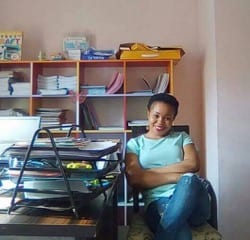
[bctt tweet=”I wanted a job that will give me this satisfaction so opening a preschool was it for me” username=”SheLeadsAfrica”] Chidinma Othuke-Okpokoro is a wife, mother, and a Montessorian. Her love for kids and the family unit moved her to open an early years foundation centre – Olly’s Hive Montessori, located in the heart of Port-Harcourt, Nigeria. Her values are geared towards helping kids discover their full potential and abilities through work using the Montessori curriculum. A graduate of the University of Port Harcourt, she also holds a Diploma in Early Years Foundation stage with Modern Montessori International (MMI) London, UK. A chat with Chidinma about her startup gives us a deeper insight into the world of early years business education. How did you get into the education industry? I love children very much and enjoy their company. I have a very good relationship with kids and they are comfortable around me even if I have just met them. Then I had friends who would drop their kids with me and go about their daily routines and they urged me to look into turning it into a business venture. After I got married and lost my job, I had my son and I really wanted to be close to him and watch him grow. I have very strong family values and I desire a close knit one. I wanted a job that will give me this satisfaction so, opening a preschool was it for me. Finally, I set up one in September 2013. Did you decide to only focus on preschool? Why? When I started, I decided to run just the preschool for a while and be grounded in it. The early years period, also known as the sensitive period, is very crucial in the life of a child. We must take advantage of this period to aid them to reach their full potential. From 0-5 years, the child should be exposed to a prepared environment. The sensitive periods are blocks of time in the life of a child when he or she is absorbed with one characteristic of his environment to the exclusion of others. Education today is said to be expensive in Nigeria – why do you think that is? Yes, education is expensive and this is because of the resources (Montessori materials) that need to be put in place to aid the child in his development. These resources are incorporated into the fees. Montessori materials are the very best to use to help a child. A lot of funds must be made available to make this work. Does it mean schools that aren’t expensive lack basic educational tools for the child? Well, yes! Montessori schools need a lot of resources in place to help a child develop. Materials are usually sourced abroad. You have to be trained and constantly improve your personal skills to ensure you are up to date in line with the requirements. Getting teachers who are qualified to teach the Montessori method is a challenge because not everyone is exposed to it. You have to train these teachers to fully assist the child in their care. Not so many people are familiar with the Montessori method of education in Port Harcourt or Nigeria. A lot of people are used to the traditional method of teaching which is stressful and difficult for children to grasp. Traditional schools lack the tools needed to help the child develop and fit in properly into the environment they live in. Would you say we have a lot of young women like you in the education sector today? My answer to this would be yes. I know and have friends who are working so hard and succeeding in this area. These women have inspired me and keep pushing me to work hard. I see how passionate they are, how much time they spend giving of their energy to help kids and ensure they get the education they need to thrive in the society. [bctt tweet=”Children are the leaders of tomorrow and what better way to be a part if this than impacting the life of child?” via=”no”] What key things should we know about investing in a child? We all will reap the rewards of well-behaved children in the society. Raising good children means better societies, free from danger and crime. If we focus our energies on children, understand them, we should be able to provide for an educational system that will help solve problems faced by the world instead of going to wars. Is there a difference between schooling and educating? Please enlighten us. Yes, there is a big difference. Schooling is done in school. Education can happen anywhere. Education to me means something of high standard and schooling is whatever quality a school offers. Schooling is the teaching of students and hoping that they retain the knowledge and later learn to apply it in life. That’s where education comes in. [bctt tweet=”To have an education is proof that not only have we learned what knowledge was offered to us” via=”no”] Where there start-up challenges? Please kindly share them. Oh yes, as with every business, there were challenges. There were days I would come in to work and cry for so many hours praying to God to help me. I didn’t have the number of kids I dreamt of when I started and this was because of the location of the school. I set it up in an area where the market wasn’t favourable. Lesson learnt. It was difficult to get qualified teachers and pay them the fees that would make them stay. The ones I got didn’t really have my vision and I was constantly frustrated. There was the need for a school bus and I initially used my personal car to do school runs. This really pushed me to continue no matter what. Would you say that the education business is a profitable venture? Why? All businesses are profitable, I bet no one would venture into
Olapeju Jolaoso: Social media is amazing for business

[bctt tweet=”Social media has been a wonderful tool for me and my business – Olapeju Omolade Jolaoso” username=”SheLeadsAfrica”] Olapeju Jolaoso is #MotherlandMogul goals. She is the founder of Abebi Organics which produces amazing organic and healthy handmade Shea Butter-based skin and hair care products. Her hope is to become the go-to person for organic skincare in Nigeria and the world in the nearest future. When she isn’t running Abebi Organics, Olapeju is in class. She is currently an undergraduate at the University of Ilorin where she is studying Geography and Environmental Management. Are your products handmade by you/your team or are you a retailer of another manufacturer? All my products, except coconut oil, are handmade by me. Due to my ongoing education, I have a separate manufacturer for the coconut oil because there is barely any time for me to make it. How have you been able to use social media to gather publicity for your brand? I got the inspiration for my business offline however, social media has helped in the growth and development by bringing customers, logistic services and so on. I use social media for free advertisement and it has really helped. People off social media have seen my ads, liked, retweeted, shared and also referred me off social media. It’s an amazing tool. How do you ensure that your product remains hassle-free from the point of order to point of delivery? Kindly explain how the sales chain works? Products going from point of order to point of delivery hassle free is actually very difficult. Most times the issue stems from logistics. You have to hope and pray that once you give the delivery person the orders, they don’t mess them, mix them up or deliver it to the customer late or even not at all. Sometimes, these things happen. You just have to keep communicating with the customer to ensure they have peace of mind and that you don’t lose them. The sales chain goes from me to the delivery personnel and from the delivery personnel to the customer or whoever is available to pick up on the customer’s behalf. [bctt tweet=”Twitter has been the most helpful social media network for my brand- Olapeju Omolade Jolaoso ” username=”SheLeadsAfrica”] What major social media channel do you make use of and how has it been beneficial to the brand? I make use of Twitter the most. It’s been the most helpful. We also use Instagram, Whatsapp, Facebook and WordPress but the major tool is Twitter. Twitter has a way of spreading your adverts. It doesn’t stay in one place. It goes from timeline to timeline. This ensures that other people who aren’t even following you see the posts and get curious thereby giving them a chance to send you a message. Also, twitter handlers can also direct their followers to your page and it’s amazing. It’s been super beneficial. We got the person who made our logo and the lawyer who registered us via Twitter. We hope to get investors via twitter too! That’ll be exciting. It’s a great marketing tool. Do you think social media alone is sufficient in helping your business gain more prominence? If yes/no, kindly share your reason. Although social media is a major tool, and mostly the best tool we have at hand right now to help our business and bring in customers, I don’t think social media alone is helping us gain more prominence. There are other channels that’ll be beneficial to us as much as social media has. We just haven’t explored them yet. Social media is amazing because we get to network with other businesses and we get a ton of customers from it. Social media is affordable, it doesn’t take too much but it gives back a lot. What challenges have you faced on social media? None really, and I hope it stays that way. But then, sometimes it’s like we aren’t reaching enough people. Sometimes I feel like we aren’t doing enough on social media to bring in a lot of customers. [bctt tweet=”I’d definitely advise anyone to use social media as a marketing tool. – Olapeju Omolade Jolaoso” username=”SheLeadsAfrica”] What would your response be to someone who is contemplating whether or not to use social media as a marketing tool? I will tell them to definitely go for it. Social media has been a wonderful tool for me and my business. I’d definitely advise them to use social media as a marketing tool. It’s amazing. If you’d like to share your story with She Leads Africa, let us know more about you and your story here.
Oluwaseyitan Awojobi: I am motivated when I see people growing
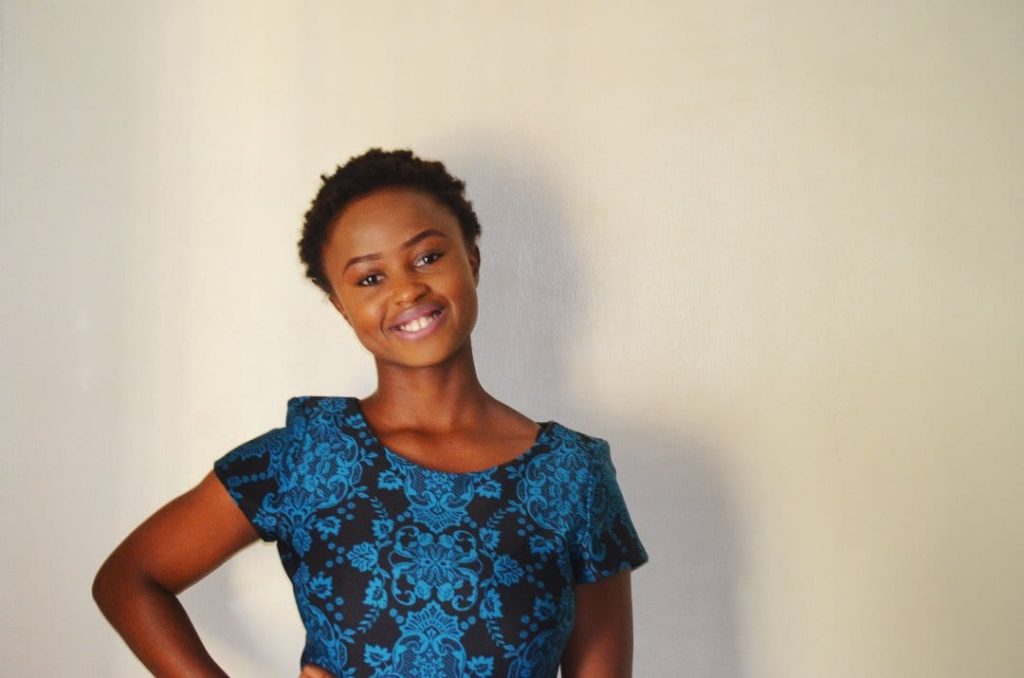
[bctt tweet=”Skill empowerment has become the best way to thrive as an individual” username=”SheLeadsAfrica”] Oluwaseyitan Awojobi is the founder of Developing Afrika. Developing Afrika is an initiative set up to empower young people with skills needed to become an entrepreneur at little or no fee, thrive as entrepreneurs and establish a sustainable business. Using social media she has raised an army of goal-oriented youth a and has succeeded in helping so many others reach their goal through free training. What was your motivation in creating Developing Afrika? In an environment where there are lots of unemployed yet talented youths, the crime rate has surged. There is also a decrease in proper jobs. Skill empowerment has become the best way to thrive as an individual whether male or female. I came up with this idea in 2013 as a fresh graduate with the aim to target young secondary school students. However, due to limited resources and knowledge, I decided to put it on hold. What has helped you to carry on so far? Starting the journey now has been the most fulfilling thing I believe I have done. I am motivated seeing people grow, seeing people achieve their dreams. It hurts to hear that people who want to achieve certain things are unable to due to financial restraints or finding the right mentors. Being able to create that solution makes the difference to me. When I tell people what I do, the first reaction I get is, “What’s in it for you, what’s your financial gain?” When I say nothing they go, “There has to be something you are gaining. What kind of business model is that.” I have learned to look beyond the snide comments and focus on the goal which is to reduce unemployment and help people achieve their dreams. I believe we can make Africa a continent to be reckoned with in the world. [bctt tweet=”It hurts to hear that people who want to achieve certain things are unable to due to financial restraints” via=”no”] How did your growing up shape who you are today? I wasn’t born with a silver spoon, neither was I born poor. I didn’t have all I wanted, I still do not. However, I learnt to see opportunities in every situation. I have had disappointments just like everyone else but I have also learned to rise above them and see the beauty in life. Life is beautiful to everyone who chooses to see it so. What are your thoughts on women-owned enterprises? I believe very much in women in enterprise. I support women working for themselves, being independent, and supporting people around them. Also, I believe that irrespective of the girl power, all women must respect their husbands or partners as it has been commanded by God. Women can only learn this by learning to support themselves in their actions first not just by words. What does your average day look like? On an average day, when I’m not on the move, I’m in my shorts and top, exchanging emails and closing deals. I also spend time running my business and praising God. I try to watch interesting movies too when time permits. If you’d like to share your story with She Leads Africa, let us know more about you and your story here.
Tejumade Adefioye-Dairo: Social media helps me reach my target market
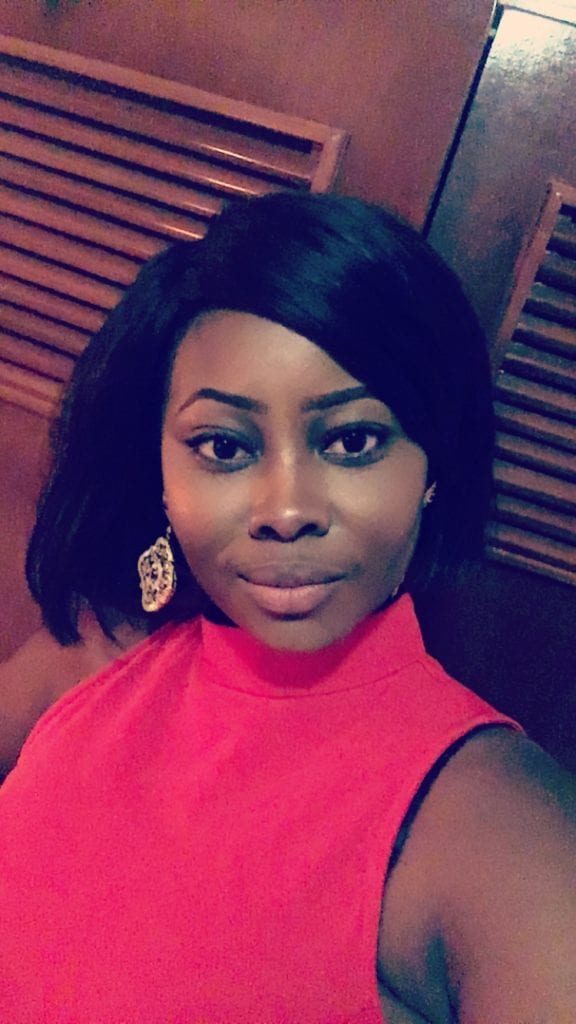
[bctt tweet=”Lazy sellers online are often competitive – Tejumade Adefioye-Dairo” username=”SheLeadsAfrica”] Tejumade Adefioye-Dairo is a graduate of Industrial Chemistry from Bowen University, Nigeria. She is also the founder of Haute Global company. Her brand, Haute Signatures specializes in the sale of handbags, shoes, jewelry, and sunglasses. When Tejumola is not thinking about new bag designs, she is looking for the next best fashion deals for her clients online. In this interview, she shares here growth from personal shopper to #MotherlandMogul and how she has used social media to grow her brand. What inspired you to start your brand? I started as a personal shopper but I got tired of traveling as a personal shopper. Also, I wanted to start a brand for Nigerians and sell at the same price or even more affordable than other international stores. How have you used social media to grow your brand’s publicity? I have profiles/pages on Instagram, Facebook, and Twitter. I put more concentration on Instagram because it gives me the opportunity to reach a larger audience and my target market is mainly on Instagram. [bctt tweet=”I have faced several challenges promoting my brand online- Tejumade Adefioye-Dairo” username=”SheLeadsAfrica”] What are some of the challenges you have faced online while trying to promote your brand? I have faced quite a number of challenges but the three biggest ones have been; Trust – Lots of Nigerians have been scammed online so they find it difficult to pay for items they have not seen. Competition from lazy people who just steal your pictures, brand it as theirs and try to rip off innocent people or buy from us and sell at ridiculous prices. Logistics problem in Nigeria. Fast delivery comes really expensive and people won’t want to buy a product of 500-5000 and have to pay as high as 2000 for delivery. Describe your product retail stages. How does your product move from your store to the final consumer after an online purchase? First, I think of and imagine a design, then I contact my manufacturer and we agree on a price. They produce the items and ship them to me. The last stage is marketing and sales. Which social media platform has been a better contribution to your sales? Instagram Are you satisfied with the current progress of your social media channels? Give reasons for your answer. No. There are still much more people who need to know of our brand. What advice would you give to someone who is intending to begin a social media business? Calm down and please keep investing your profit. If you’d like to share your story with She Leads Africa, let us know more about you and your story here.
Joyce Muthoni: Starting entrepreneurship at a young age has given me time to make mistakes
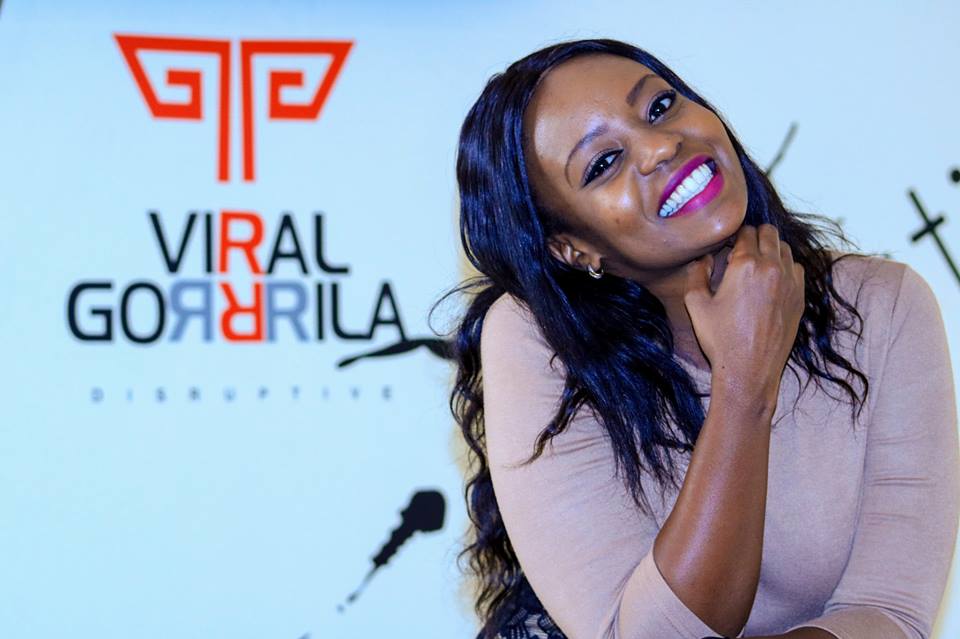
[bctt tweet=”The name Viral Gorrrila came from a need to have our audience be curious about what we do ” via=”no”] She calls herself a spirited individual and she has accomplished a lot in a short span of time. Joyce Muthoni is the founder of Viral Gorrrila and has worked in her first business for 6 years. She started her first business Proteque Consulting while still on campus, just before she graduated. After six years of running it, Joyce started a balloon business, retailing helium balloons. In under two years, her balloon business is now getting into retail stores and expanding into other regions in Kenya, after successfully setting up the Nairobi and Mombasa offices. The balloon business led to the founding of Viral Gorrrila, a digital marketing agency. It was because of digital marketing activities that her balloon business grew its client base. Joyce quickly saw an opportunity to venture into an untapped industry and help companies gain more market share through digital activities. Tell us why you choose the name Viral Gorrrila for your business. Viral Gorrrila is a digital marketing company that deals with a number of things including website design, Google analytics, Google ads, social media marketing and advertising, and content development. I believe that content is king and conversion is queen. the coining of the name Viral Gorrrila came from a need to have our audience be intrigued, attracted and curious about what we do. The essence of our work is to ensure that as many people as possible get to learn about our clients’ brands and services. The ‘viral’ bit is coined from this while ‘gorrrila’ came from the word guerilla in guerilla marketing. The goal of the company is to develop creative, captivating and memorable content for our clients and this is what guerilla marketing is about. Our creative content seeks to fulfill this and create advocates out of the audience. The Viral Gorrrila term in its self-symbolizes disruption, doing things differently, changing the way digital marketing has been done in our country and helping our clients and other brands see the value of change. The “rrr” in Gorrrila reflects this. Why do you say you’re a new kind of digital marketing agency? What makes you different? There are a lot of agencies in the country, some with a wealth of experience and others starting out and learning the ropes as they go along. We have a strong team that is conversant with Google advertising and social media advertising. We also have a deep focus on creative content development and we have ventured into animated productions in 2D and 3D for our clients and are pursuing a digital channel that will air only animated content made in Kenya. This will, later on, open up to airing content from the rest of Africa. What exciting projects are you working on lately that you can share with us? My work and keen interest in the animation field has led me to work with a local gaming and animation company that is making great strides in the market. I was approached by the Director of ISHAKA LLC, Mr. Sagwa Chabeda, to assist in the project concept and fundraising. We are currently working on a gaming, animation and manga franchise that is set to take the African, European and American markets by storm. It is a bold statement to make but it is a viable endeavor. We have attracted interest from some international production and distribution companies who are looking for new content to market to the world. The ball is in our court and we want to tell our African stories and help the world understand who we are, our cultures, traditions, and heritage. We want to give our viewers an authentic display of the different countries in Africa, one story at a time. [bctt tweet=”My keen interest in animation has led me to work with ISHAKA a local gaming & animation company” via=”no”] You started your business while in school, what was your experience being a student entrepreneur? I started my business in my final year of campus. I had some work experience previously in my father’s company and it was here that I made the decision not to pursue employment after my education. Understanding my personality and passion, I knew what my dreams were and I didn’t want to wait to pursue them. The great thing about starting my business while I was still on campus was that I got business referrals from my fellow classmates who were older and already running their own businesses. I also received advice from them on business planning and execution. On the other hand, I was inexperienced in many things and my lack of experience cost me a lot of money and brought a lot of tears. I had no HR, finance or management skills. My background was in marketing. I had to quickly learn the ropes and continue to keep an open mind, learning attitude, build tough skin and pursue continuous development. Starting entrepreneurship at a young age has given me time to make mistakes, understand my strengths and grow into the business woman I am today. I am now very clear on what I can and cannot do and this has helped me to avoid taking up projects that I know I will not be able to adequately serve. Starting early has also been beneficial in giving me time to grow my network and I can confidently say I am a very resourceful person. I have come to appreciate the pains and pleasures of entrepreneurship and I have a big heart for those who want to venture into business. I appreciated the assistance I got when I was on campus as I started out and I would not hesitate to help anyone seeking advice as an entrepreneur. You have to tell us about your balloon business, how did the idea to run this come up? How exactly did you use digital marketing to grow it?
